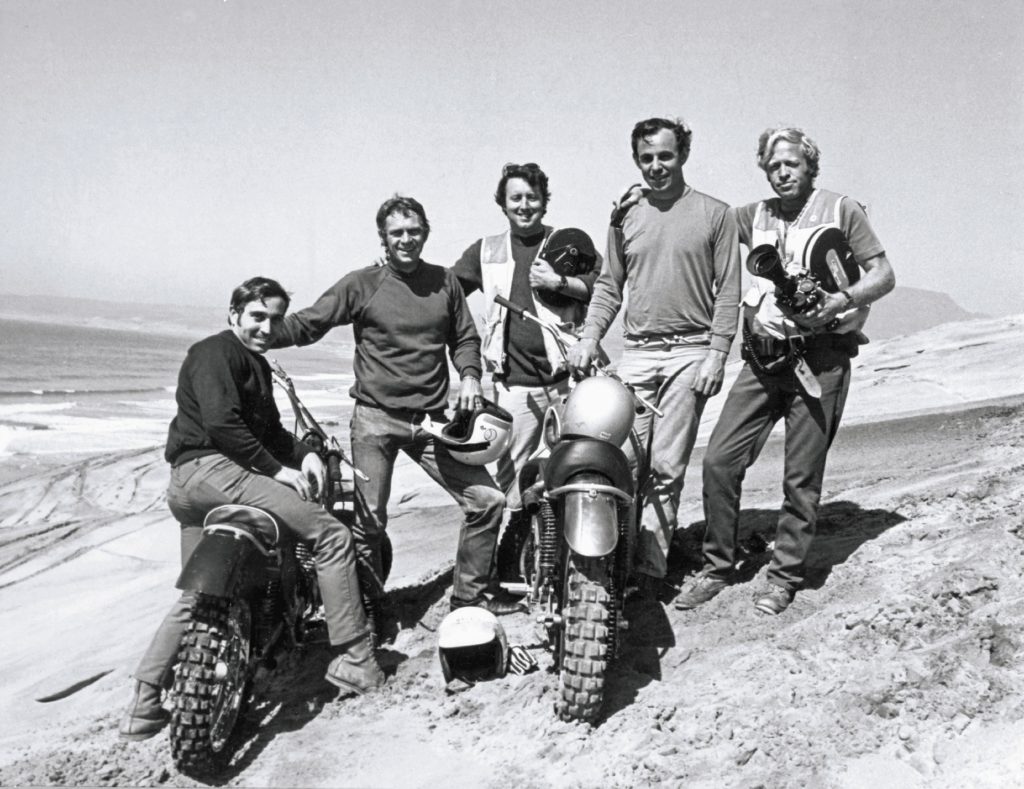
As we celebrate its Golden Anniversary, Bruce Brown’s epic moto-documentary On Any Sunday continues to thrill
Words by Mitch Boehm
Photos courtesy of the Bruce Brown and Malcolm Smith archives
They say there are few certainties in life aside from death and taxes. For motorcyclists, a third might very well be the fact that you love Bruce Brown’s On Any Sunday motorcycle documentary nearly as much as you love your mothers.
Released 50 years ago this season, On Any Sunday made full-throttle, open-class knobby marks on America and the American two-wheeled terra firma, garnering an Academy Award nomination for Best Documentary and thrilling motorcyclists and non-motorcyclists alike in what would become a decades-long – and ongoing – love affair.
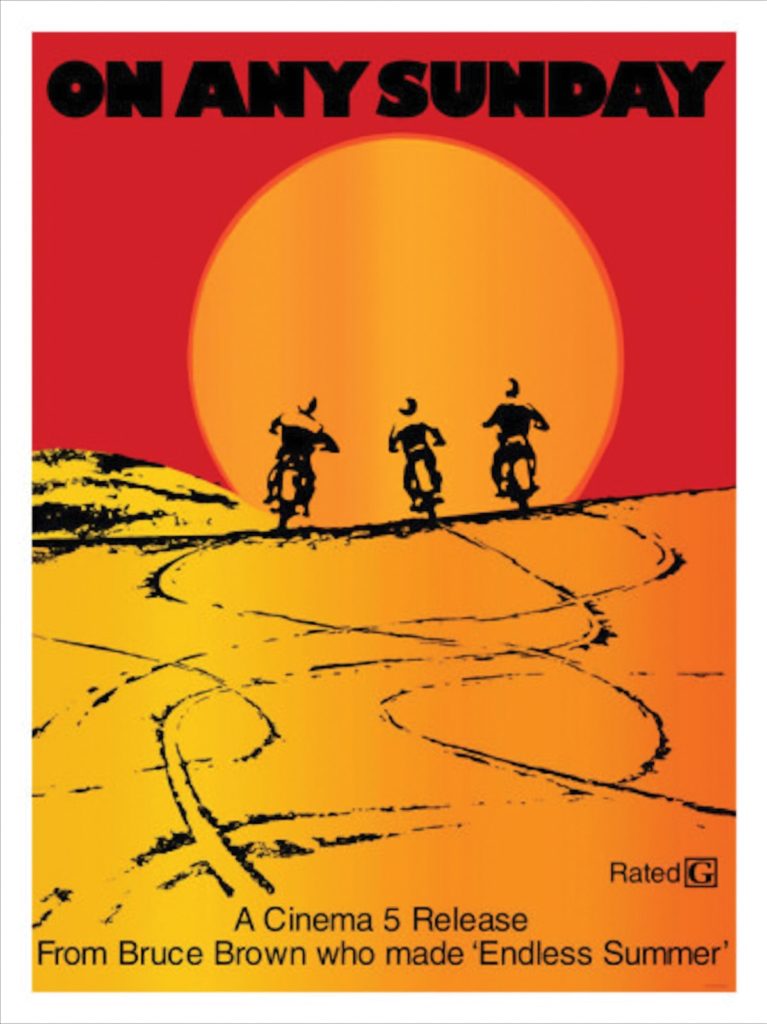
Spend any time with the legendary racer and businessman Malcolm Smith at an event or at his store in Riverside, California, as I have over the years, and it’s a good bet the first thing out of the mouth of anyone who approaches Malcolm starts with these words: “I remember when I first saw On Any Sunday back in the early 1970s….” Malcolm’s co-star and Grand National Champion dirt tracker Mert Lawwill hears the same stuff.
Brown’s tale is that powerful, that universal.
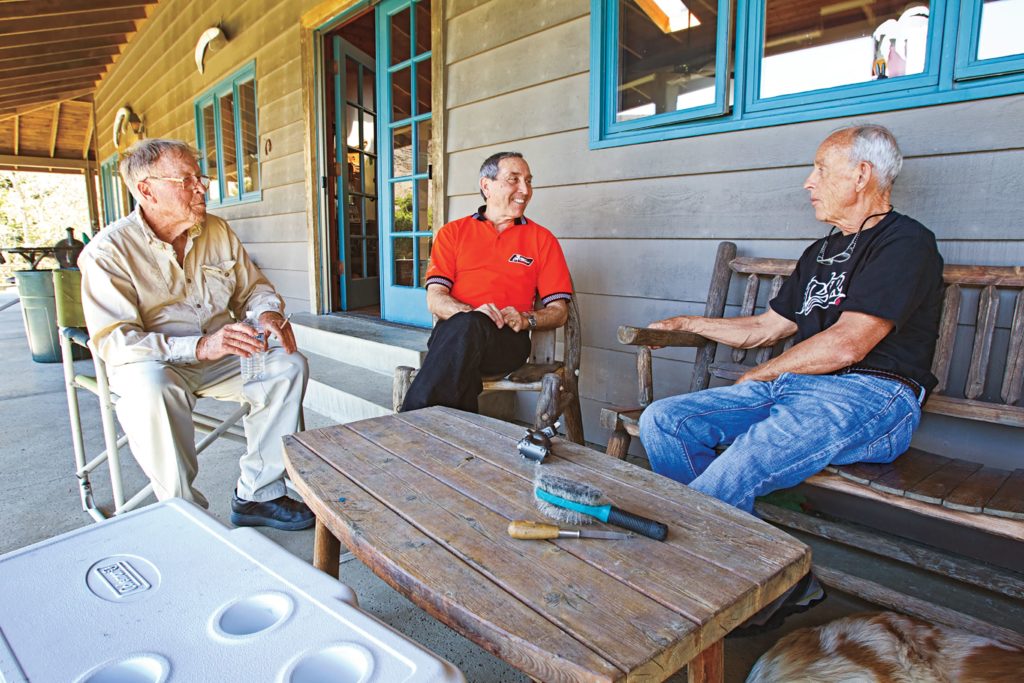
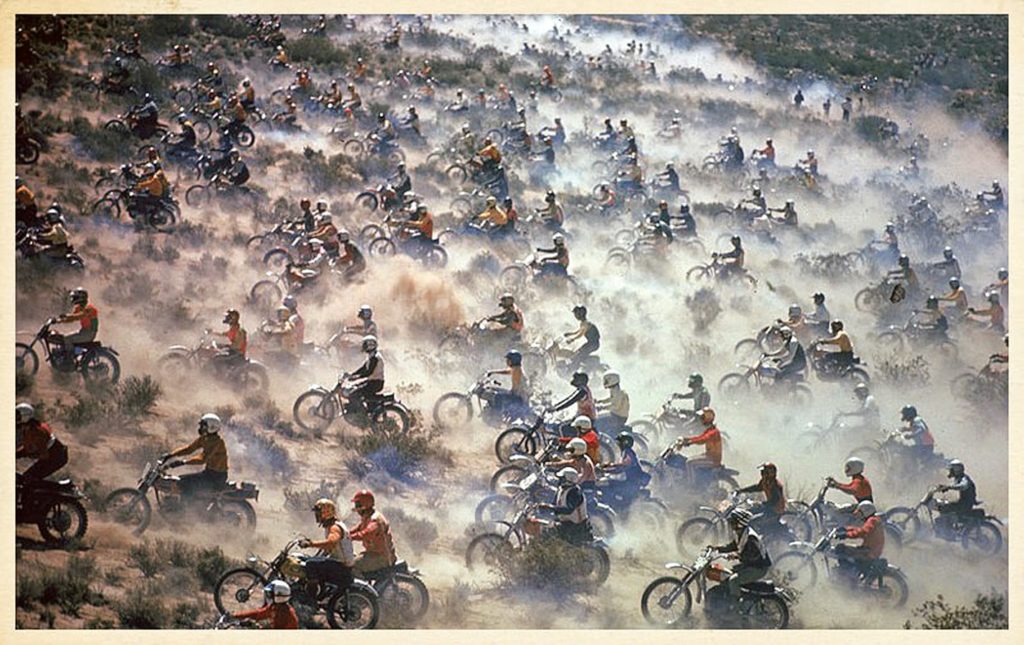
From the goosebump-generating opening scenes and kitschy, early-’70s music to the dirt track, desert race, hill climb, road racing, ice racing and ISDT grist that comes later, to the emotionally stirring final scenes of Smith, Lawwill and fellow co-star – and Hollywood icon – Steve McQueen playing on Baja’s sand dunes and spinning donuts on a So Cal beach, Brown’s funky-yet-friendly take on our two-wheeled world reminded us then, and reminds us now, why we all became motorcyclists in the first place.
“A motorcycle is anything you want to make it,” Brown voices in the movie’s opening scenes. “Turn it on and you can give yourself a real thrill!”
A real thrill.
Watching On Any Sunday, even after the 50th or 100th viewing, is very definitely that, and every time I do, which is about once a month, the same thing happens: During the entire hour, twenty-eight minutes and 39 seconds, I am a kid again…riding my first motorcycle – a red 1971 Honda SL70 – through the woods in rural northern Ohio and experiencing that special freedom that only a 10-year-old on his or her first motorcycle can feel.
And I’m also, of course, reminded yet again just how droolingly wonderful the sport of motorcycling really is.
On Any Sunday Roots
My first real look into the history and guts of On Any Sunday occurred during the research and writing of Malcolm Smith’s autobiography, titled Malcolm! The Autobiography, which Malcolm and I began work on in 2012 and finished in 2015. (Get yours at malcolmsmith.com.) Malcolm was old friends with Bruce Brown, of course, and during the development and writing of Chapter Six (the On Any Sunday chapter) we chatted with Bruce a lot about how it all came together. Suddenly I was privy to all sorts of stories and anecdotes about the movie and Lawwill and McQueen, and for a fan like myself, every one of them was totally engrossing.
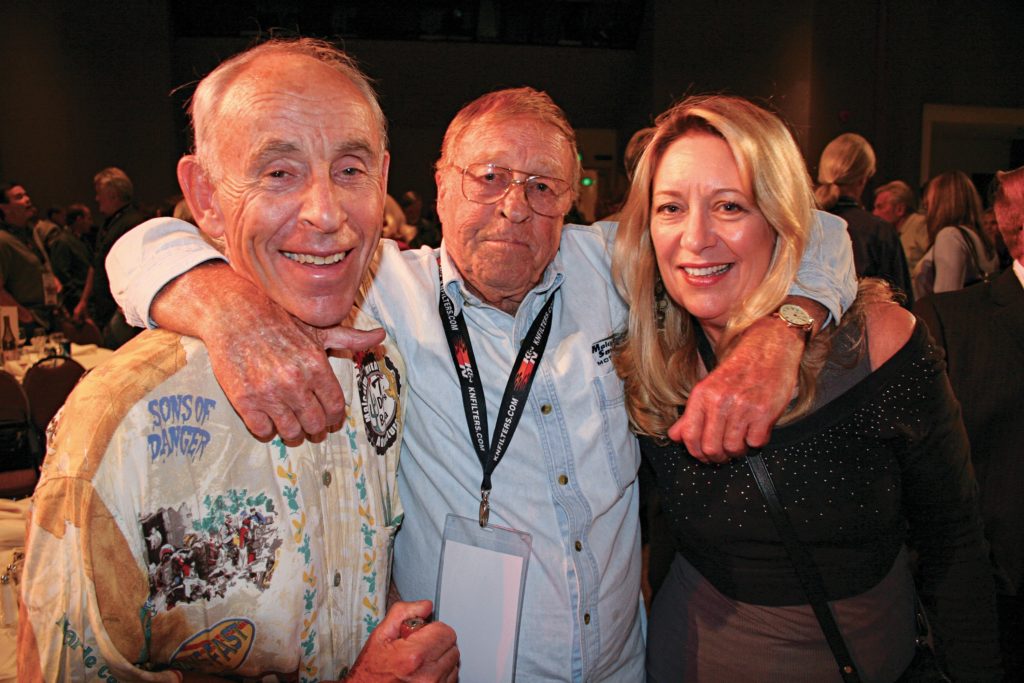
Bruce Brown was a Southern California kid who began surfing (and taking pictures) at age 11. He attended high school in Long Beach, majoring in (his words), “not going to school,” and after scoring high marks in the Navy’s submarine school ended up being sent to Hawaii in 1955 (the horror!), where he continued surfing and began taking 8mm movies of it all in his off hours. Five early surf films followed after his Navy discharge in ’57, culminating in the epic The Endless Summer of 1966, which cemented his legacy as the premier chronicler of surf culture on film.
“In the 1950s,” he told an interviewer, “we just tried to figure out something to do to stay at the beach. [John] Severson [founder of Surfer magazine] did the magazine, [Gordon] Clarke did the [surfboard] foam, Hobie [Alter, of Hobie Cat fame] the boards, and I did movies. We did it just to stay at the beach.”
After the release of The Endless Summer Brown began focusing on his other passion – dirt bikes.
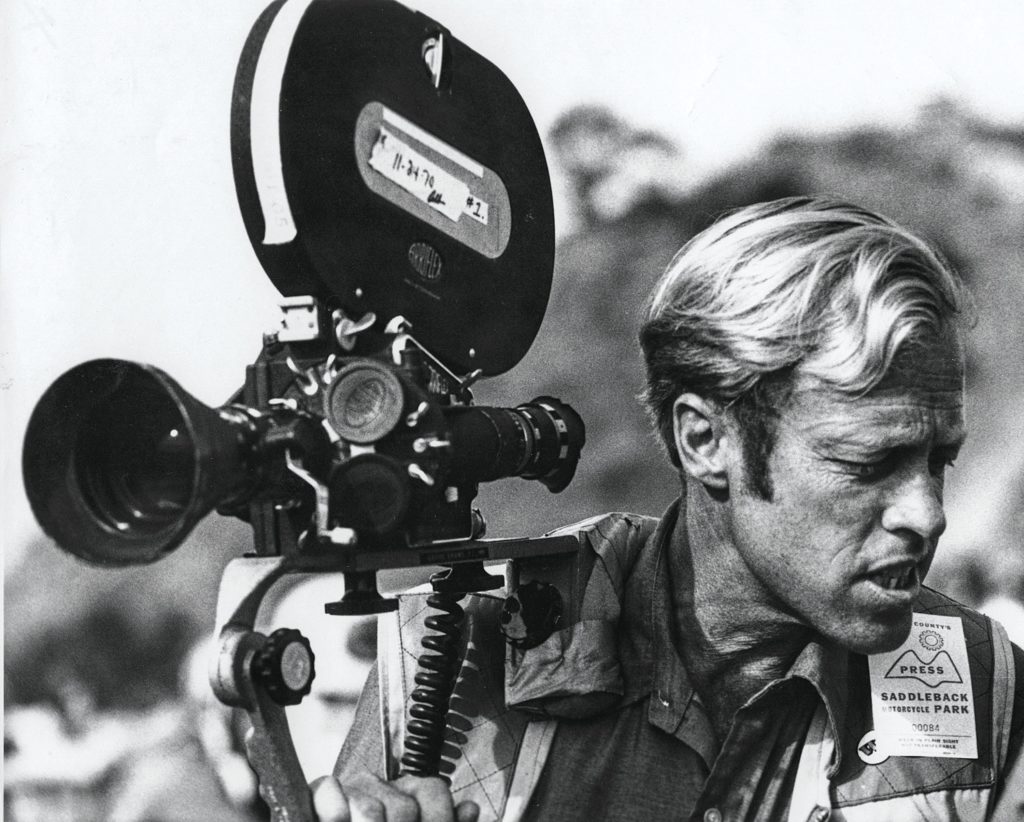
“I’d been riding on and off,” Brown told me years ago, “and really enjoyed it. I thought, ‘this is really fun. Maybe I’ll do a movie about motorcycles.’ I figured I’d cover a wide range, motocross, desert, road racing, the flat track circuit. I wasn’t sure where I’d go with it, but I figured I’d see what developed.”
Brown had befriended Malcolm Smith after buying a motorcycle from him at Malcolm’s So Cal shop, and after seeing what a well-rounded rider he was, figured ol’ Malcolm might be part of his film.
To finance it he approached movie icon Steve McQueen, who was at first a bit miffed that Brown wanted money and didn’t seem all that interested in having McQueen star in the film. McQueen said he acted in movies, not financed them. “Fine,” Bruce told him good-naturedly, “you can’t be in the film!” McQueen thought better of it and called Brown the following day, telling him to get going on the project.
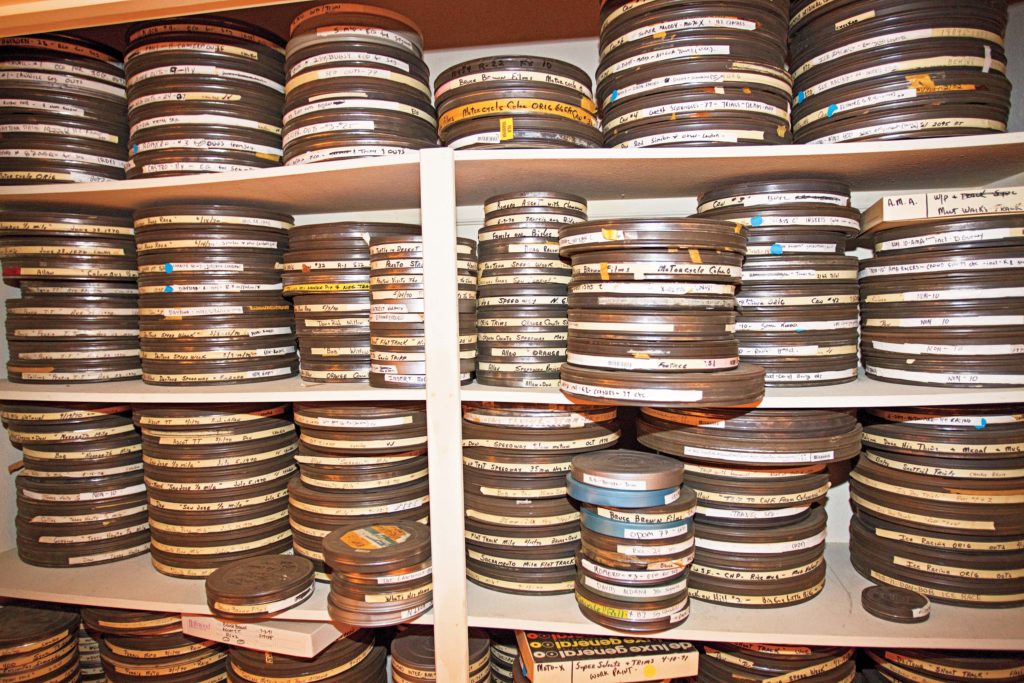
Getting Malcolm to commit was tougher. Malcolm wanted to be involved, thinking the exposure might be good for his business, but he was underwater trying to make a go of his newly purchased K&N Yamaha store (which he’d just bought outright from Kenny Johnson and Norm McDonald, who were just launching K&N Air Filters), and told Bruce to go on without him.
Fortunately, Brown asked again a few weeks later, and, having gotten things a bit more buttoned-up at work, Malcolm agreed to be involved, but only if Brown would pay him $100 for every day he was out of the office! Brown agreed, and it would turn out to be one of the better investments he’d make.


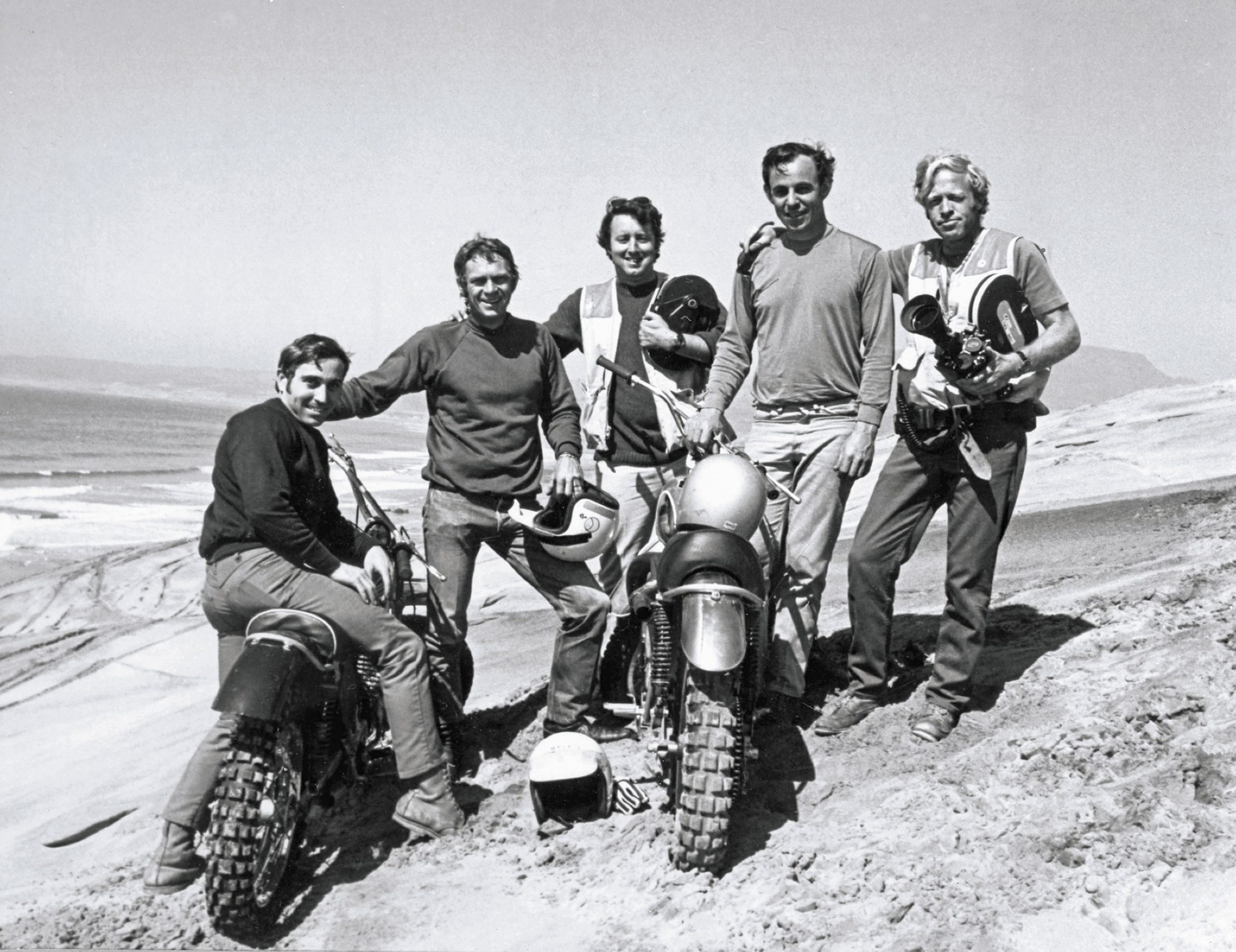



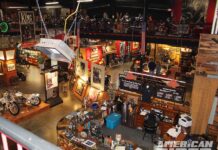











[…] Read Part 1 HERE […]
[…] Read Part 1 HERE […]
[…] Read Part 1 HERE […]
[…] Read Part 1 HERE […]
[…] Read Part 1 HERE […]
[…] Read Part 1 HERE […]
[…] Read Part 1 HERE […]
[…] Read Part 1 HERE […]
[…] Read Part 1 HERE […]